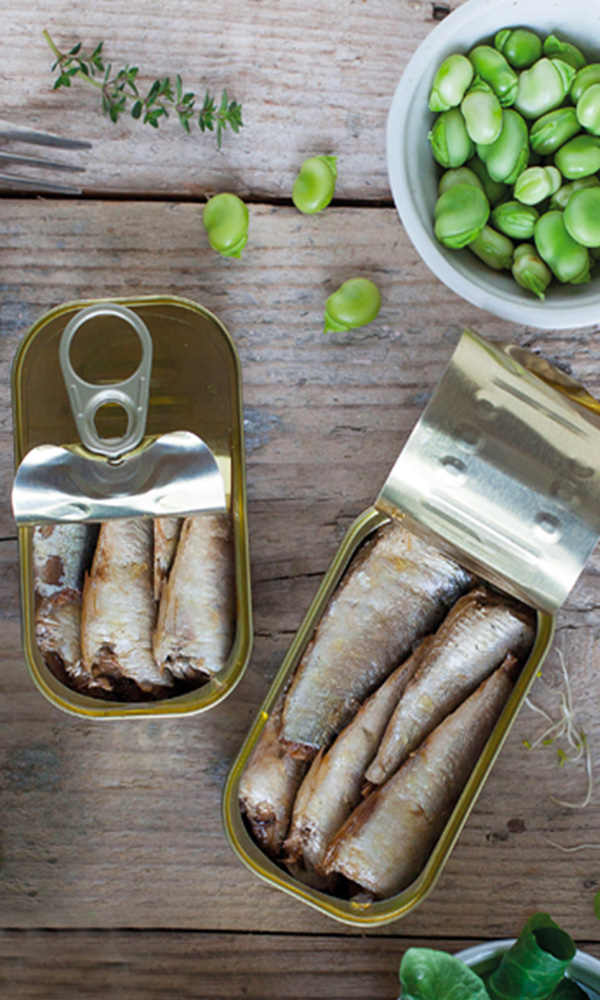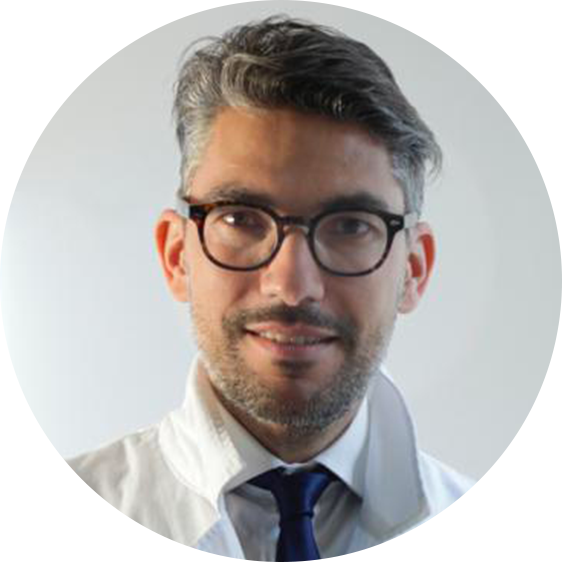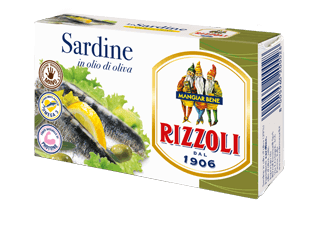SARDINES …
MAKE YOU HAPPY
The sardine is among the foods with the highest content of tyrosine, an amino acid used by the body to build noradrenaline and dopamine, which give the body a boost and help find the right mental mood.
LE SARDINE …
FANNO LA FELICITA’!
La sardina è tra gli alimenti con il maggior contenuto di tirosina, un amminoacido utilizzato dall’organismo per costruire la noradrenalina e la dopamina, che danno la carica e aiutano il giusto tono mentale.

Omega-3 e non solo
Le sardine sono ricche di grassi monoinsaturi e polinsaturi che migliorano il profilo del colesterolo e riducono i trigliceridi nel sangue. Hanno un’azione antiaritmica per il cuore riducendo il rischio trombotico e rendono la pelle più luminosa.
Amiche degli sportivi
Le sardine contengono proteine di alto valore biologico, ovvero presentano un’ottima composizione di amminoacidi essenziali. Sono quindi un ottimo alimento per gli sportivi, soprattutto dopo l’attività fisica, per gli anziani e i bambini.
Ossa più forti
Le sardine sono un’ottima fonte di vitamina D: 200 grammi soddisfano interamente il fabbisogno di un adulto. Importante per la salute delle ossa, la vitamina D è utile a chi soffre di problemi osteoarticolari.
Tante vitamine
Le sardine sono ricche di vitamine B3 e B12. La prima interviene nei metabolismi di carboidrati, proteine e grassi e fa bene alla pelle. La B12 è essenziale nella formazione dei globuli rossi. 100g soddisfano il fabbisogno giornaliero di un adulto.
Calcio, fosforo & co.
La contemporanea presenza di calcio, fosforo e vitamina D rendono le sardine uno degli alimenti più utili a chi soffre di problemi osteoarticolari e, visto che le ossa si formano fino ai 25 anni, sono fondamentali anche per bambini e adolescenti.
Ossa più forti
Le sardine sono un’ottima fonte di vitamina D: 200 grammi soddisfano interamente il fabbisogno di un adulto. Importante per la salute delle ossa, la vitamina D è utile a chi soffre di problemi osteoarticolari.

Cardiologo
Massimo Gualerzi è cardiologo, esperto in prevenzione e riabilitazione delle malattie cardiovascolari. È stato per 15 anni dirigente medico nell’Unità di prevenzione e riabilitazione cardiovascolare della Fondazione Don Gnocchi all’Università di Parma. Dal 2009 è Professore a contratto dell’Università degli Studi di Parma. Tiene corsi rivolti a medici e pediatri in tutta Italia sui temi del benessere e della SuperSalute, nei quali spiega come somministrare i “farmaci del futuro”: attività sportiva, corretta alimentazione e un approccio consapevole alla salute.
La ricetta Supersalute
Massimo Gualerzi
Crema fredda di pomodori con Sardine e carciofi marinati
INGREDIENTI
• Sardine Rizzoli in olio di oliva 50 g
• Pomodori 100 g
• Carciofi 30 g
• Curcuma q.b.
Per la marinatura:
• prezzemolo (da tritare)
• 2 limoni (da spremere)
• olio evo aggiunto a crudo
•sale marino integrale/sale di sedano/ gomasio q. b.
Metodo di preparazione
Tagliare a scaglie i carciofi ed unirli alla marinatura per 15 min.
Una volta lavati e selezionati i pomodori, inciderli leggermente con la punta del coltello nella parte inferiore.
Sbollentarli in acqua per circa 15 secondi, poi trasferirli in acqua e ghiaccio in modo da provocare lo shock termico e facilitare la spellatura.
Trasferire nel mixer i pomodori precedentemente sbollentati, lo scalogno e il sale, frullare il tutto e aggiungere l’olio a filo amalgamando il composto in modo che si leghi.
Utilizzare come base la crema di pomodoro fredda, posizionare i carciofi marinati e collocare al di sopra di essi le Sardine Rizzoli in olio di oliva, aggiustare di sale e spolverare con curcuma in polvere.
PRODOTTO UTILIZZATO
Lavorate a mano sul luogo di pesca per ottenere un prodotto tenero e gustoso.
